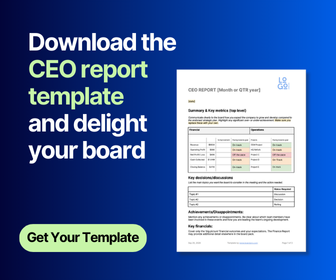Seven Steps to Effective Governance for Financial Advice Providers
Mainzeal was a significant player in the New Zealand construction industry before its collapse in 2013. In the aftermath of that collapse, the High Court in 2019 ordered Mainzeal’s directors to pay $36 million towards the losses of the company’s creditors.
Although Mainzeal’s directors subsequently appealed that decision, in March this year the Court of Appeal confirmed the High Court’s ruling that they were guilty of trading while insolvent. As a result, there may even be an increase in the amount of damages awarded. This could end up being substantially higher than the cover provided by the directors’ insurance policies.
This case is important - even for small companies. It reinforces the need for company directors in New Zealand to pay serious care and attention to the duties they have to their company and its creditors. The Mainzeal case illustrates that directors can later be judged quite harshly for failing to meet their responsibilities.
Mainzeal had benefited from a board of professional company directors, including even a former prime minister. By comparison, many Financial Advice Providers (FAPs) are less well-equipped. Many businesses in the sector are governed by working (‘executive’) directors who are often also the major shareholders. Their attention understandably tends to be focused on those activities that will deliver revenue to their business. In companies running on limited operational budgets, there is often little distinction between governance and management functions.
Nevertheless, board members must still discharge their legal duties.
-3.png)
The Mainzeal situation underlined the need for directors to fully understand their business - its risks as well as its rewards - and their obligations to different categories of stakeholders.
The Mainzeal case concerned a breach of the reckless trading rules contained in the Companies Act 1993. FAPs should pay heed to that and other legislation and, importantly, to the conditions of their licence and the Financial Markets Authority’s (FMA) expectations as the sector regulator.
The FMA emphasises the importance it gives to the governance and culture of entities in the financial services sector:
We want to see that financial service providers demonstrate an appropriate customer-centric culture and improvements in governance, incentive structures, sales and advice processes and systems to mitigate conduct risk.
In this White Paper, we explore how directors of FAPs can ensure their companies are good shape to serve their clients and meet the regulator’s expectations.
How, then, can we ensure that the standard of governance supports a financial advice provider’s licence to operate?
1. Have a clear understanding of directors’ legal and moral duties
At its most basic, the governance of companies and other corporate entities is about direction and control. Generally, ‘direction’ is about the intentional provision of worthwhile benefits (products or services) to parties external to the business, while ‘control’ is about identifying and managing factors that might disrupt or undermine the provision and value of those benefits.
In New Zealand and internationally, many attempts have been made to ‘legislate’ for good governance. Directors need to be aware of the consequent statute law and applicable regulations. These set standards of performance or create compliance obligations for them and their companies.
All directors of FAPs should have at least a rudimentary understanding of board and directors’ duties under the Companies Act 1993. Directors’ (fiduciary) duties include requirements that you:
- Act in good faith and in the best interests of the company
- Exercise powers for proper purpose
- Avoid reckless trading
- Exercise a duty of care
- Comply with all relevant legislation and organisation constitutional requirements
- Make proper use of information and advice
In a broad sense, directors are expected to act honestly and avoid using their board positions for personal advantage. These duties and others referred to in the Companies Act have broad application and are the foundation of many of the FMA’s expectations about FAP director conduct and organisational culture. FAP licence holders should also be familiar with the specific legislation applying to the licensing and delivery of their services. To assist, the FMA provides a range of informative publications that FAP directors should be aware of, including:
Guide to Financial Advice Provider licence requirements and application kit(2021)
Corporate governance in New Zealand: Principles and guidelines handbook (2018)
2. Set clear expectations of directors, staff and anyone else operating under your licence and ensure these are clear and being met
The FMA expects each FAP to have a documented policy that sets out its expectations for director and senior management roles and ensures that all persons are capable of performing their roles and maintaining their competency.
A tool that serves this purpose in other organisations is commonly referred to as a board charter. Other names are also used (e.g. board manual, governance manual) for a document that is, in effect, the board’s job description. Integral to this is to adopt codes of conduct or codes of ethics which address, among other things, the management of potential conflicts of interest. An ideal board charter also addresses the board/management interface, including the delegation of authority from board to management. Including all of these essential policy components in a single document helps ensure that each element hangs together as a consistent and comprehensive whole and makes for ease of reference and application by directors and senior staff.
Based on its experience,
The FMA has found numerous examples where entities’ internal policies and procedures were not fit for purpose and/or were not subject to regular reviews and monitoring. It expects entities to comply with their obligations by means of a set of policies and procedures suited to the size and nature of the organisation.
Developing governance policies and procedures should not be a ‘tick box’ compliance exercise. These should form an integral part of business-as-usual, including the recruitment and subsequent induction process for all new directors and staff and ongoing training and reporting processes.
The use of appropriate board management software such as BoardPro will greatly enhance access to such documentation.
There is widespread international as well as domestic concern about the culture of financial services organisations. Various forms of conduct contrary to the best interests of customers of FAPs have come to light in recent years.
These have been thoroughly explored through inquiries such as the Australian Royal Commission into Misconduct in the Banking, Superannuation and Financial Services Industry.
Consequently, governments and regulators have made it increasingly explicit that boards and directors will be held responsible for organisational conduct and culture. The Australian Royal Commission highlighted six desirable behaviours. These are consistent with the FMA’s expectations and in the list below provide a useful starting point for FAPs in developing, for example, a code of conduct:
- Obey the law
- Do not mislead or deceive
- Be fair
- Provide services that are fit for purpose
- Deliver services with reasonable care and skill
- When acting for another, act in the best interests of that other
An issue highlighted in the Australian situation, as in many similar reviews in other parts of the world, was the extent to which executive and staff remuneration arrangements are at the heart of excessive risk-taking and behaviour contrary to customers’ best interests.
This subject is something to which FAP boards need to pay particular attention.
3. Plan and do the right governance work
Ideally, governance and management functions would be distinct and there should be different people assigned to undertake them. However, this is difficult in smaller businesses where directors are likely to wear other hats (owners, investors, office managers, client advisers, etc).
Directors are required to act in the best interests of the company. It follows that they must determine what those interests are and then act appropriately to advance them. Doing this thoroughly requires time and attention. However, as governance matters seldom have the urgency and immediacy of business operations, they are often neglected.
Directors often struggle to separate their governance ‘hat’ from other obligations they might have to the business. In such cases, it is helpful to hold the thought that, as directors, they must work ‘on’ rather than ‘in’ the business. John Carver, a US governance theorist, expressed the board’s role as being to ‘design the future, not mind the shop’. A core governance activity is a policy framework that guides or directs the decisions and actions of everyone in the business. This framework encompasses, for example, strategic direction, market position, priorities, risk management, ethics and values.
Central to this is the ability, conceptually, to separate ‘ends’ from ‘means’. Until directors have defined what the business must achieve, there is no basis for determining the best and most appropriate means to deliver desired results. However, we must also acknowledge that the ends don’t always justify the means. The governance function must, therefore, define and restrict the use of unacceptable means as well. An example, drawn from the Australian Royal Commission, is customers being sold products or services they don't need even though they can be convinced to buy them.
Directors inexperienced in governance can find it helpful to seek external assistance from someone in a governance ‘coaching’ role. An even better option can be to have an experienced independent director appointed to the board, perhaps even as the board chair. External assistance like this helps the board ensure that it is doing the governance work that is necessary and doing it correctly.
Once the board has this sense of the kind of work it must do, it needs to make this the focus of its meetings. A powerful tool for this is a board work plan or ‘annual agenda’ featuring topics that are truly governance relevant and reflect the matters to which the board must attend.
4. Get the right information for decision-making and monitoring
Boards have the constant challenge of considering the validity and integrity of the information they rely on to enable them to make commercial decisions. Too often, however - even in major corporates with significant management resources - boards find themselves lacking the information they need to carry out their governance function. Typical shortcomings include quantity (either too much or too little) and quality (relevance to the governance role, timeliness, depth of analysis, etc).
In general terms, boards need information that helps them do their job rather than invites them to be spectators to management/operational activity.
In monitoring business performance, boards tend to receive too much material on business activity and too little related to business impact. A board should be far more interested in the results of management effort than descriptions of the effort or activity itself.
Another unfortunate tendency is to overweight reports with historical data. The result is that boards end up, as the saying goes, ‘steering by looking in the rear-vision mirror’.
Boards can only influence what has not yet happened. They need information and analysis that helps them assess whether planned results will be achieved while they can still influence outcomes.
The type of policy framework referred to earlier (Step 2) helps determine what information the board needs. When it comes to setting expectations for management-provided information, the board needs to do its job first. For example, a board cannot expect management to report on the achievement of desirable outcomes if it has not first defined what those outcomes should be.
Key performance indicators (KPIs) can be a useful starting point for a board discussion with management about reporting. However, KPIs are only helpful if they genuinely are ‘key’ and, therefore, relatively few.
The challenge for every board is to try and identify the small number of performance measures that will tell them most of what directors need to know about how the business is tracking.
Given the FMA’s expectations about boards' attitudes to the conduct and culture of FAPs, boards need information that embraces far more than simple (and generally after-the-fact) measures of financial performance.
A good starting point for a FAP board would be to draw a checklist of expectations from the FMA’s guide to licence requirements. The board should regularly review such a checklist to see where the FAP sits. Those expectations are implicitly, if not explicitly, the governance standards it must maintain if it is to obtain/retain its licence.
5. Maintain good records
A theme of the FMA guidance on licensing requirements is the need for a FAP to establish and maintain good records. The FMA acknowledges that businesses of different sizes will have varying requirements and capabilities. While it is not, therefore, a case of ‘one size fits all’, establishing and maintaining appropriate records is central to good governance in any enterprise.
A company’s records have many different components: policies and procedures , client and staff details, financial reports, shareholder agreements, compliance reports, and the list goes on. Helping company directors keep track of what is relevant at the governance level has become far easier with board management software like BoardPro. Many such ‘board portals’ are designed primarily to improve document management and security of storage. The better systems are complete board management tools that facilitate the design and implementation of board work programs and support the planning, conducting and recording of board meetings. Other by-products include greater transparency and improved accountability reporting.
Directors need to be particularly concerned with the quality of board minutes. Recalling the Mainzeal situation described at the start of this document, it is worth noting that a board’s minutes have been described as a ‘letter to the judge’. Thus,
A board’s minutes may well protect directors against unwarranted accusations should, for example, a decision be challenged in court.
Board minutes should be neither a verbatim transcript of individual contributions to the board’s meeting nor solely a record of decisions made. Instead, they should be sufficient in content to set out the purpose of each discussion, the information relied on, the key points discussed, the decision itself and the considerations that produced the decision. Minutes should also record how the meeting was conducted in relation to, for example, the handling of conflicts of interest.
Another way of thinking about board meeting minutes is that they record the history of the evolution of the business.
6. Engage appropriately with stakeholders and shareholders
The Australian Royal Commission drew attention to the exploitative behaviour of some FAPs towards their customers. Similar misconduct issues have been identified in other jurisdictions, including the United Kingdom and the United States. Such conduct is not only immoral and arguably illegal but also has the potential to weaken consumer and investor trust across the financial system.
On the back of the Australian experience, the FMA and Reserve Bank jointly undertook a review of the retail banking sector in New Zealand. They aimed to identify whether conduct and culture issues were also present locally and understand how banks detect, manage and remediate these. They concluded that conduct and culture issues were not widespread within banks in New Zealand. The two institutions did, however, state their concern about banks' lack of proactivity in identifying and addressing conduct issues and risks in their business.
FAPs are commercial enterprises that sell products and services to customers to profit and deliver returns to shareholders. The FMA/RBNZ review concluded that:
Sustainable profitability (and a sound financial system) is best achieved when customers understand the products and services they receive, and these are suited to their needs on an ongoing basis. In the absence of these criteria, customer confidence declines, as does bank profitability and financial system soundness and efficiency.
The FMA’s concern about weaknesses in the governance and management of conduct risks is reflected very clearly in its expectations of the boards and directors of FAPs. Proactive boards of FAPs will want to have a full understanding of not only the needs of clients/customers but also the regulator.
Accordingly, the FMA is looking for evidence that FAPs and other financial service providers have a genuinely customer-focused culture.
Customers and the regulator are not the only stakeholders of an FAP. Therefore, boards should consider developing a comprehensive stakeholder relationship strategy.
Doing so would involve the systematic identification and analysis of the company’s relationship (both actual and desired) with all key stakeholders. Action to progress relationships indicated by this analysis would then be factored into strategic and/or operating plans.
The FMA has stated that the boards of financial service providers should:
8.4 Recognise it is in the shareholders' interests to take account of the interests of other stakeholders (e.g. customers, employees, the public, the government, and anyone else affected by the business).
8.5 Take account of stakeholder interests by, for example:
- Having clear policies for the entity’s relationships with significant stakeholders, bearing in mind distinctions between public, private and crown ownership
- Regularly assess compliance with these policies to ensure conduct toward stakeholders complies with its code of ethics and the law
- Check conduct toward stakeholders aligns with current accepted social, environmental, and ethical norms.
7. Review board and director performance
It is understandable that boards and managers alike are tempted to move quickly onto the next problem that arises or a new emerging initiative. However,
Any governing board needs to have an explicit commitment to pausing from time to time to learn from recent experience, and review and commit to improvement options.
Most boards routinely review the performance of their company and its management. A further step should be a regular review of the performance of the board. Ideally, this would also include an evaluation of the contribution of its members individually.
The board’s work is the starting point for many, if not all, of a company’s systems and processes. Therefore,
The board’s effectiveness significantly impacts company performance and, not least, the fulfilment of its compliance obligations.
The best place to start such a review is with the expectations set for the board as outlined in the kind of board charter referred to earlier (Step 2). The process can be conducted with varying degrees of scope, formality and with or without external assistance.
The most important factor is that the board has a genuine commitment to examining how effective it has been over a previous (say, 12-month) period.
The true test of a board’s reflections on its effectiveness has two components:
- The degree of honesty applied to its analysis, and
- The extent to which its deliberations result in a commitment to action that will make it even more effective in discharging its governance responsibilities.
There should also be professional development initiatives that flow from a board and director review.
Regardless of other responsibilities they might have in the business, it should be a basic expectation that the directors of an FAP will undertake some form of continuing professional development. Their customers and their staff should expect nothing less.
In summary
The life of a director can be very rewarding when simple governance steps are implemented and followed.
Being a director is never a risk-free exercise, but there are ways to protect yourself by ensuring you are as informed as you possibly can be about the business and the role, and about your responsibilities as a director. Insurance is an essential backstop, but, as the Mainzeal directors have found, it is at best a Plan B. It is not a substitute for doing the job well in the first place and remember, you cannot insure your reputation!
Operationalise the responsibilities of directors as set out in legislation and by the regulator and document these in a board charter as well as in policies, procedures and checklists.
Have the discipline to ensure that the work to be an effective director is prioritised. even when the demands of other roles you may have in the business are pressing.
Establish board management systems and processes to keep good governance records that lay down the evidence that you are doing a good job.
Share this
You May Also Like
These Related Stories

What type of director are you?

What are the board of directors' responsibilities?


